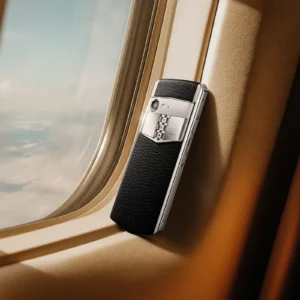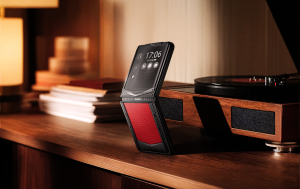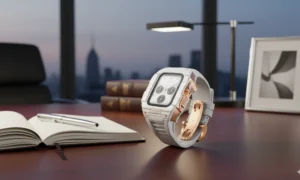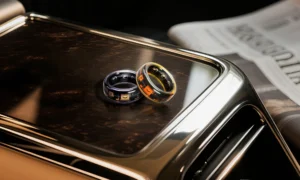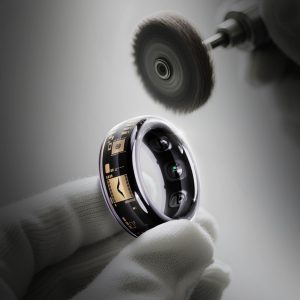Top Fitness Trackers for Stress Management You Should Try in 2025
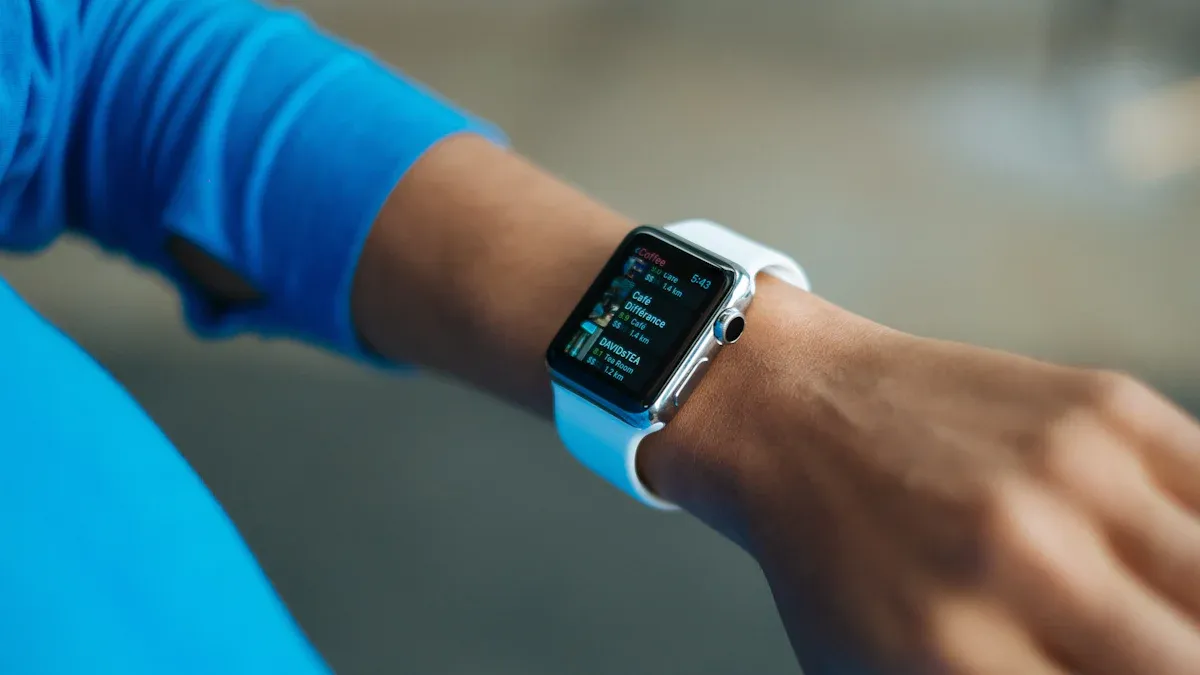
Feeling stressed? You’re not alone. Almost half of workers in the U.S. and Canada report high stress levels.
Today’s best solutions include the VERTU Aura Ring, Oura Ring, Whoop 5.0, Fitbit Charge 6, Garmin Vivoactive 5, Samsung Galaxy Watch 7, Apple Watch Series 10, Xiaomi Smart Band 9, and Google Pixel Watch 3. Studies show that a Fitness Tracker with Stress Management can help you feel calmer and more in control. The VERTU Aura Ring stands out for its luxury crystal design and advanced nano-sensors. Choose what feels good on your hand, fits your style, and keeps you on track.
Key Takeaways
- Fitness trackers help you handle stress by showing real-time data about your body. Pick one that matches your style and what you need.
- Find trackers with special sensors that check heart rate and sleep. These features help you see your stress levels better.
- Comfort is very important when picking a fitness tracker. If it feels good, you will use it more often. This helps you watch your health.
- Think about battery life when you pick a tracker. If the battery lasts longer, you charge it less and track your health more.
- Connect your fitness tracker to health apps for a full view of your wellness. This makes it easier and better to manage stress.
Best Stress Trackers of 2025
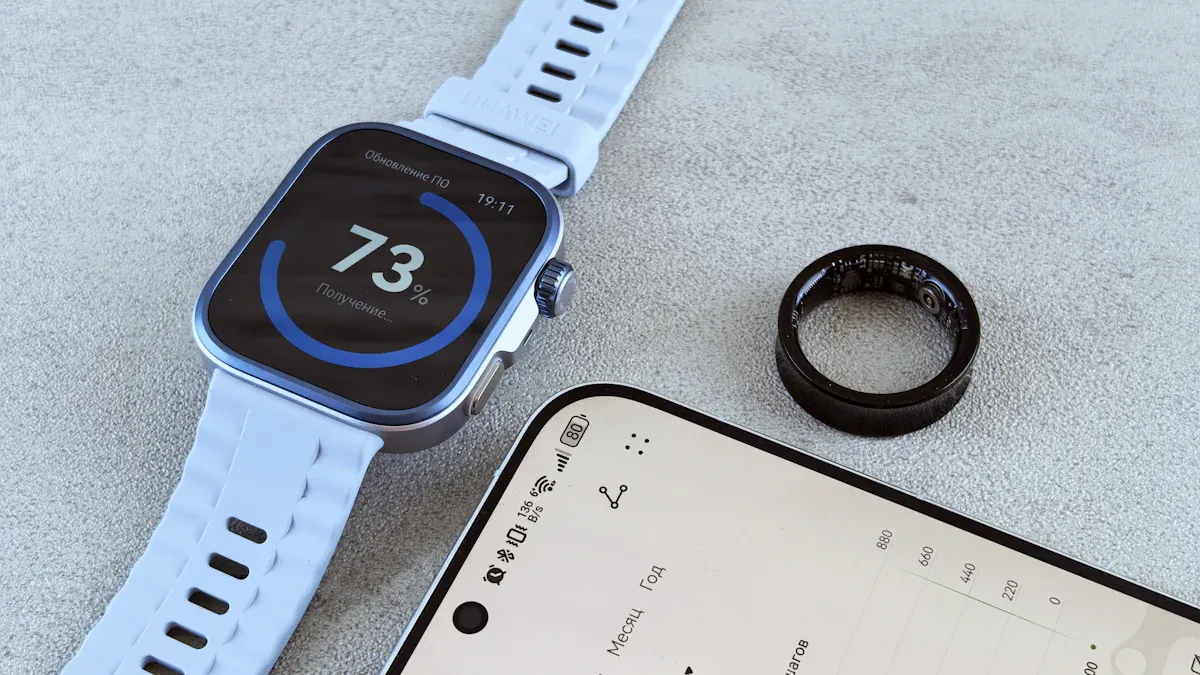
Quick Overview
Are you searching for the best stress trackers in 2025? There are many good options. Here are some top choices that people and experts like for stress management:
- VERTU Aura Ring: This ring looks fancy and uses special nano-sensors to check your health.
- Oura Ring: It is comfortable and tracks your sleep and stress in detail.
- Whoop 5.0: This tracker helps with recovery and stress, so it is great for athletes.
- Fitbit Charge 6: It gives you good stress tracking and fitness tools in a thin band.
- Garmin Vivoactive 5: This tracker checks your stress and helps with sports and fitness.
- Samsung Galaxy Watch 7: It has smart features and helps you manage stress in a cool watch.
- Apple Watch Series 10: This watch tracks stress, heart health, and more. It is easy to use.
- Xiaomi Smart Band 9: You get stress tracking at a low price with this band.
- Google Pixel Watch 3: It works with Google Health to track stress and wellness easily.
- Fitbit Inspire 3: Experts like this one because it is simple and helps manage stress well.
Tip: Smart wearables are popular because they show live data, give you helpful info, and work with apps. You can see feedback and tips right on your wrist or finger.
Why These Trackers Lead
Why are these the best stress trackers? Experts check a few things before they rate them. Here is a table that shows the main things they look at:
| Criteria | الوصف |
|---|---|
| Advancements in wearable technology | Devices use new sensors and features to track stress better. |
| Integration with fitness programs | Trackers work with fitness apps to help you stay active and manage stress. |
| Use of AI and machine learning | AI gives you tips just for you and can guess your stress patterns. |
| Product type classification | Smart wearables are better than basic trackers because they have more features. |
You can see that companies like Oura and Fitbit keep adding new things to help you manage stress. The best stress trackers in 2025 use smart tech, new sensors, and easy apps. You can pick one that matches your style, budget, and health needs.
How Fitness Trackers with Stress Management Work
Tracking Technologies
When you use a fitness tracker with stress management, you get access to some pretty cool technology. These devices use different sensors to check how your body reacts to stress. Here’s a quick look at the main sensors you’ll find in a fitness tracker with stress management:
| Sensor Type | Technology Used |
|---|---|
| Salivary Sensors | ECG |
| Sweat Cortisol Sensors | Heart Rate Sensor |
| Wearable Sensor | GPS |
| Microphone | |
| Skin Temp Sensor | |
| UV Sensor | |
| Touchscreen | |
| Waterproofing |
So, how do these sensors help with stress tracking features? Let’s break it down:
- Heart rate variability (HRV) is a big deal. If your HRV drops, your stress might be going up.
- Some trackers use sleep analysis to see how well you rest. Poor sleep can mean higher stress.
- Nano-sensors in rings and bands can spot tiny changes in your body, giving you a better stress management score.
A fitness tracker with stress management uses all these tools to give you a clear picture of your stress. You get a stress management score every day, so you know when to take a break or try some deep breathing.
Accuracy and Limitations
You might wonder how accurate these stress tracking features are. Here’s what you should know:
- A fitness tracker with stress management gives you helpful insights, but the numbers are not always perfect.
- Your body movements can change the results.
- Where you wear your tracker matters. If it’s loose or in the wrong spot, your stress management score might be off.
- The type of activity you do can also affect your stress tracking features.
Even with these limits, a fitness tracker with stress management helps you spot trends and make better choices. You can use your stress management score to see what works for you and what doesn’t. Over time, you’ll learn how your body reacts to stress and how to manage it better.
Top Fitness Tracker Reviews
VERTU Aura Ring
If you want a tracker that feels like a piece of art, the VERTU Aura Ring stands out. You get a ring that looks stunning with its crystal design and deep-gold tones. It feels light and smooth on your finger, so you can wear it all day and night. The Aura Ring uses advanced nano-sensor technology to track your sleep, heart rate, blood pressure, and even glucose levels. You see your health data in real time, and the ring gives you personalized insights to help you manage stress before it builds up. The Aura Ring blends luxury with smart health features, making it a top choice if you want both style and substance.
Note: The Aura Ring is perfect if you want a tracker that matches your lifestyle and gives you proactive health guidance.
Oura Ring
The Oura Ring is a favorite for many people who want comfort and strong stress tracking. You can wear it overnight without feeling bulky, unlike some smartwatches. Here’s what you get:
- Up to 7 days of battery life, so you don’t have to charge it every night.
- Comfortable fit for sleep and daily wear.
- Detailed sleep and stress tracking that matches medical-grade devices.
A study found that the Oura Ring tracks sleep time and quality almost as well as medical tools. This makes it a reliable choice for stress detection and sleep monitoring.
Whoop 5.0
Whoop 5.0 is a tracker for people who love data and want to see how stress affects their body. You get:
- A new stress monitor that checks your stress using different body signals.
- Recovery tracking that looks at your heart rate, sleep, and breathing.
- Trends that show how your stress changes over time.
Whoop 5.0 asks you to subscribe to see your data. Some users find the amount of information a bit much if they don’t check it often. The tracker does not track elevation as well as others, but it shines when it comes to showing how your body recovers from stress.
Fitbit Charge 6
Fitbit Charge 6 gives you a simple way to track stress. It uses EDA scans to measure tiny changes in your skin’s sweat, which tells you how your body reacts to stress. You also get:
- Many health tracking features.
- An easy-to-use interface.
- Integration with Google services.
You can see your stress score and get tips to relax. Fitbit Charge 6 is a great pick if you want a fitness tracker review that covers both stress and fitness.
Garmin Vivoactive 5
Garmin Vivoactive 5 helps you manage stress with tools that focus on your mind and body. Check out this table for its top features:
| Feature | Benefit |
|---|---|
| Mindfulness tools | Helps you keep your mind healthy. |
| Nap detection | Lets you know when you need rest. |
| Meditation modes | Supports relaxation and focus. |
| Mindful breathing | Guides you to breathe and reduce stress. |
| Hydration reminders | Reminds you to drink water for better health. |
You also get workout benefits and recovery time tracking, so you know when to push yourself and when to rest.
Samsung Galaxy Watch 7
Samsung Galaxy Watch 7 gives you smart stress tracking right on your wrist. You can:
- Track stress using heart rate and heart rate variability.
- Measure stress manually or let the watch do it automatically.
- Use the Samsung Health app for extra tips.
Some users say the stress numbers change a bit, but the watch helps you spot trends and build better stress habits.
Apple Watch Series 10
Apple Watch Series 10 brings stress management features to your daily routine. You get:
- A stress tracker that checks cortisol levels using skin temperature and heart rate variability.
- Mindfulness tips to help you relax.
- All-day battery life up to 18 hours, or 36 hours in Low Power Mode.
- Fast charging that gets you to 80% in about 30 minutes.
You can trust the Apple Watch Series 10 if you want a device that fits into your Apple world and helps you stay calm.
Xiaomi Smart Band 9
If you want something affordable, Xiaomi Smart Band 9 is a smart pick. Here’s a quick look:
| Feature | Xiaomi Smart Band 9 |
|---|---|
| Affordability | Budget-friendly |
| Stress Tracking | Tracks stress as relaxed, mild, moderate, or high |
| Health Metrics | Monitors sleep, activity, heart rate, and blood oxygen |
You get good stress tracking and health features without spending a lot.
Google Pixel Watch 3
Google Pixel Watch 3 is easy to use and works well with Google Health. You can track your stress, sleep, and activity in one place. The watch gives you reminders to take breaks and breathe, helping you manage stress throughout your day. If you use Google services, this watch fits right in.
Tip: If you want the best overall fitness tracker, look for one that matches your style, comfort, and the stress management features you care about most.
Key Features for Stress Management
Stress Detection
When you pick a fitness tracker, stress detection is very important. The best trackers use sensors to check your heart rate and skin temperature. Some even check how much you sweat. These sensors show when your body feels stressed. This helps you act before stress gets worse. Trackers like the Oura Ring and Garmin Vivosmart use heart rate variability. You get feedback right away. A stress score helps you see patterns. It also helps you balance stress and rest. Some devices have a Daytime Stress feature. This shows how your body reacts to daily problems. It helps you use stress to grow and become stronger.
Tip: If you see stress as helpful, you can get more done and recover faster.
Here’s a quick look at how different trackers handle stress detection and guided breathing:
| Device | Stress Detection Features | Guided Breathing Features |
|---|---|---|
| Apollo Neuro | Uses vibrations to activate the parasympathetic nervous system | N/A |
| Fitbit Sense | EDA and skin temperature sensors for stress tracking | N/A |
| Garmin Vivosmart | HRV-based stress scores | Offers guided breathing features |
| Oura Ring | Tracks HRV and sleep quality | N/A |
Guided Breathing
Guided breathing is a simple tool in many trackers. When your tracker senses high stress, it can suggest a breathing exercise. You see this on your wrist or finger. These exercises help you slow down and focus. They lower your stress levels. Studies show guided breathing really helps with stress and anxiety. You do not need medicine. Just a few minutes of breathing can help a lot. Some trackers watch your breathing rate and patterns. You can see how well you are doing.
- Guided breathing exercises help lower stress and anxiety.
- You can use these exercises anytime and anywhere.
- Trackers often remind you to take a breath break.
Comfort and Wearability
You want a tracker that feels good all day. Comfort is important because you need to wear your device often. The best trackers use designs that fit your body well. Light rings and slim bands feel like a second skin. You might forget you are wearing them. If a tracker feels heavy or big, you may stop using it. Then you miss out on activity tracking and stress management. Devices that fit well help you keep your routine. They help you reach your health goals.
Note: Real-time feedback and easy goal tracking keep you motivated and make activity tracking fun.
Battery Life
Battery life is very important. You do not want to charge your tracker all the time. The best trackers last for days or weeks. You can focus on activity tracking and stress management. You do not have to worry about charging. Long battery life means you get more data. You learn more about your daily habits. Some trackers charge fast. You are not without your fitness tracker for long.
If you want the most from your tracker, look for one with good activity tracking, comfort, and long battery life. The right device helps you manage stress, stay active, and feel your best every day.
Comparison Table
Picking a fitness tracker can be hard. You want one that fits your life. It should help you with stress every day. Here is a table to help you compare the top trackers. You can see how each one does with stress, accuracy, comfort, battery, and price.
| Tracker | Stress Management | Accuracy | Comfort | Battery Life | سعر |
|---|---|---|---|---|---|
| VERTU Aura Ring | Advanced nano-sensors | High | Featherlight | Up to 7 days | Luxury |
| Oura Ring | Sleep & HRV tracking | High | Ergonomic | Up to 7 days | Premium |
| Whoop 5.0 | Custom recommendations | Moderate | Comfortable | Subscription model | Subscription |
| Fitbit Charge 6 | EDA & HRV tracking | High | Slim band | Up to 7 days | Moderate |
| Garmin Vivoactive 5 | Advanced metrics | High | Comfortable | Good | Moderate |
| Samsung Galaxy Watch 7 | HRV & manual tracking | Moderate | Sleek design | Up to 2 days | Moderate |
| Apple Watch Series 10 | Cortisol & HRV | High | Adjustable | Up to 18-36 hours | Premium |
| Xiaomi Smart Band 9 | Basic tracking | Moderate | Lightweight | Up to 14 days | Low |
| Google Pixel Watch 3 | Stress & sleep | Moderate | Comfortable | Up to 24 hours | Moderate |
Tip: For the best results, pick a tracker with advanced sensors and real-time heart rate checks. These features help you get the most correct data.
Some trackers have more features and better accuracy. Others are simple and easy to use. The VERTU Aura Ring and Oura Ring are very accurate and feel nice to wear. They look fancy and give you good data. Fitbit Charge 6 and Garmin Vivoactive 5 are also very accurate and last long on one charge. If you want to save money, Xiaomi Smart Band 9 is a good choice. It gives you basic tracking and the battery lasts a long time.
If you do not want to charge your tracker every day, look for one with a long battery. Comfort is important, too. You will wear your tracker all day, so it should feel good. Price is something to think about. Some trackers cost more because they use fancy materials or have extra features.
When you look at these trackers, think about what you need most. Do you want the best tracking? Is comfort most important? Maybe you care about battery or price. Use this table to help you pick the right tracker for your life.
Common Concerns
Accuracy
You might wonder if your fitness tracker really knows when you feel stressed. Many experts say these devices can measure stress, but sometimes they make it sound more accurate than it is. You may wake up feeling tired or anxious, and your tracker might show a normal score. Some users believe their own feelings matter more than the numbers on the screen. The truth is, the data from your tracker may not always match your real emotions. Stress tracking can help you spot patterns, but it does not replace how you feel inside. If you notice your tracker’s numbers do not match your mood, trust yourself first.
Tip: Use your tracker as a guide, but listen to your body and mind for the full picture.
Privacy
Privacy is a big deal when you use a fitness tracker. These devices collect lots of data about you, including your stress levels, sleep, and even your location. Sometimes, companies store this data in the cloud, which can be risky if hackers try to get in. You may not know who sees your information because the rules are often hidden in long agreements. Some trackers share data with other companies, and you might not notice. Location tracking can also reveal private details about your life.
- Companies collect lots of health and location data.
- Hackers can target devices and cloud storage.
- Data sharing rules are often hard to find.
- Location tracking can expose sensitive information.
Manufacturers try to protect your privacy by using strong security and clear controls. You should check your settings and learn how your data is used.
App Integration
Fitness trackers work best when they connect with your favorite health apps. You can link your device to Apple Health, Google Fit, Fitbit, Strava, or Garmin. This makes it easy to track your wellness activities, even if you switch apps. Many trackers include mindfulness apps for meditation or breathing exercises. You can set reminders to take a break and relax. Your tracker may watch your heart rate and alert you when stress goes up. It can suggest using a mindfulness app or taking a walk.
- Trackers connect with popular health apps for easy data sharing.
- Mindfulness apps help you relax and manage stress.
- Devices can alert you when stress is high and offer quick solutions.
Note: Connecting your tracker to health apps helps you see all your wellness data in one place. This makes stress management easier and more fun.
Choosing Your Fitness Tracker
Matching Features
Picking the right tracker can feel tricky, but you can make it easy by focusing on what matters most to you. Start by thinking about your daily routine and what you want from lifestyle tracking. Do you walk a lot, run, or just want to know how stressed you feel each day? Here are some steps to help you match features to your needs:
- Think about your fitness goals and how you spend your day. If you want to improve your lifestyle tracking, look for a tracker that fits your habits.
- Check if the tracker has features for stress, like heart rate monitoring and sleep analysis. These tools help you understand your stress and improve your lifestyle tracking.
- Match the tracker to your lifestyle. If you play sports or work out often, you might want a tracker with advanced lifestyle tracking. If you just want to track steps and stress, a simple device works well.
- Look for extras like water resistance, long battery life, and phone notifications. These features make lifestyle tracking easier and more fun.
- Make sure the tracker feels comfortable and looks good. You will wear it every day, so comfort is key for lifestyle tracking.
Tip: The best tracker is the one you will wear every day. Comfort and style matter as much as features.
Value and Budget
You do not have to spend a lot to get great lifestyle tracking. Many trackers offer strong features at different price points. Here are some things to keep in mind:
- Price matters. Some trackers cost less than $200, but watch out for monthly fees. These can add up over time and affect your budget for lifestyle tracking.
- Check what the tracker can do. Some devices track heart rate, sleep, and even sports. Good lifestyle tracking means you get the data you need.
- Budget trackers can still help you reach your goals. They let you try lifestyle tracking without spending too much. You can set goals, see your progress, and make healthy choices.
If you want the best fitness and lifestyle tracking, balance what you need with what you can spend. You can find a tracker that fits your lifestyle tracking needs and your wallet.
There are lots of ways to track your health in 2025. The best stress trackers show your heart rate, sleep, and wellness right away. You also get advice and workout plans made just for you. Some people like seeing their health numbers. Others might worry if they try to be perfect all the time. Your health is your own journey. Choose a tracker that matches your style. You might want a fancy VERTU Aura Ring or a simple band for daily use. Remember, your tracker should help you feel better, not make you stressed.
التعليمات
How do fitness trackers give you real-time stress updates?
You get real-time updates because your tracker checks your body signals every second. It uses heart rate monitoring and other sensors. You see your stress level change right away. This real-time feedback helps you know when to relax or try a breathing exercise.
Can I get coaching for stress management with my tracker?
Yes! Many trackers offer coaching right on your wrist. You get real-time tips, reminders, and even guided breathing. Coaching helps you build healthy habits. Some devices even give you the best personalized coaching based on your daily data.
What makes real-time monitoring important for stress?
Real-time monitoring lets you see changes as they happen. You notice stress spikes during your day. This helps you take action fast. Real-time alerts and coaching make it easy to stay calm and focused, even when life gets busy.
Do fitness trackers have high-performance features for athletes?
You can find high-performance features in many trackers. These include real-time heart rate monitoring, advanced coaching, and detailed activity stats. Athletes love these tools because they help improve training and recovery with ease.
Is it easy to use a fitness tracker for stress?
Yes, it’s all about ease. You just wear your tracker and check your real-time stats. Most trackers have simple screens and easy controls. You get coaching and real-time feedback without any hassle. This makes stress tracking part of your daily routine.

